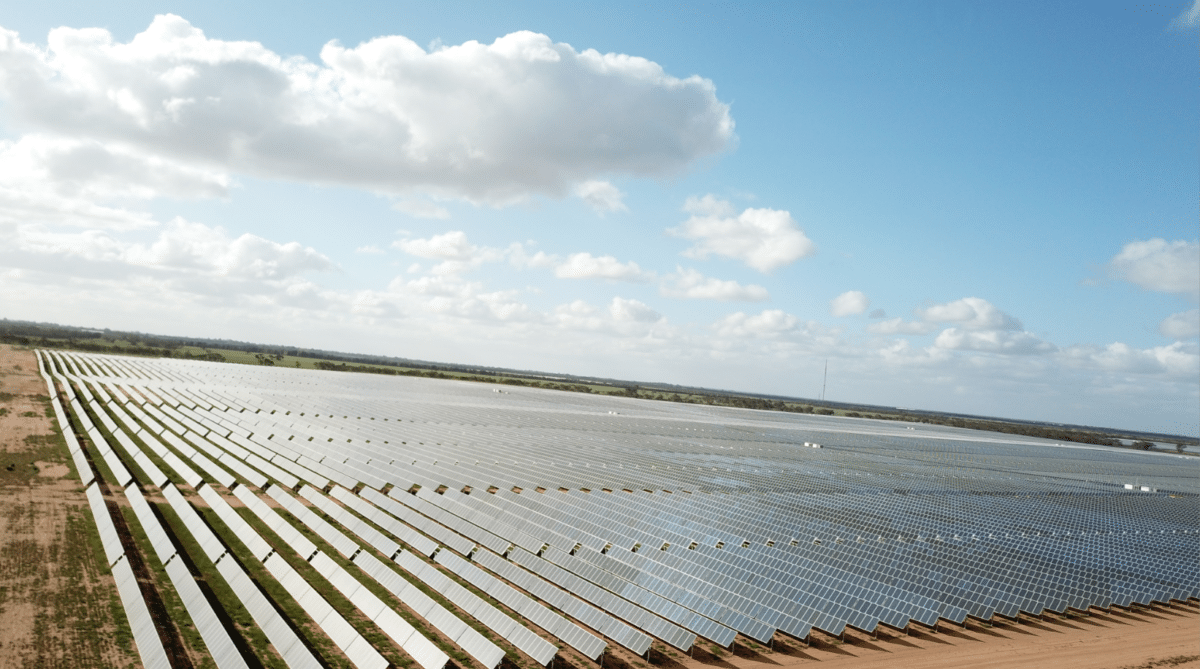The 106 MW Yatpool Solar Farm in Victoria (VIC), which was completed in the back end of 2019, has finally seen a successful connection to the grid in VIC’s notoriously congested north-west.
Owned by German renewable energy developer BayWa r.e., the 350,000 solar panel project capable of generating enough electricity to power 40,000 homes, has suffered through an 18-month delay since its construction completion and final commissioning. That is a period almost double that of the construction.
According to BayWA r.e. Projects Australia managing director Fleur Yaxley, “These delays were driven by complicated grid congestion challenges in the North West Murray region of the National Electricity Market (NEM) grid. Challenges I’m pleased to say we were able to overcome to get the site connected.”
Yaxley went on to note that an offtake agreement for Yatpool’s generation with business energy retailer Flow Power is already in place, “a reflection of the growing appetite for corporate renewable power purchase agreements. We’re really pleased to be able to help meet this growing demand from businesses for renewable energy.”
Despite sitting idle through 2020, through a global pandemic no less, maintenance and commissioning work continued. Yaxley thanked BayWa r.e.’s construction partners Beon, consultants WSP and SMEC, Powercor and AEMO for helping to ensure a safe and socially distanced working environment “in very challenging circumstances. This project is a great example of what can be achieved with truly collaborative working.”
Despite the delay, BayWa r.e. remains committed to the Australian market and, according to a statement, “is dedicated to helping the country to meet its target of growing its renewable energy share to 41% by 2030.
BayWa r.e.’s APAC director Daniel Gaefke said that the company still sees enormous potential in the Australian market “and are keen to demonstrate just how achievable Net Zero is.”
This content is protected by copyright and may not be reused. If you want to cooperate with us and would like to reuse some of our content, please contact: editors@pv-magazine.com.









By submitting this form you agree to pv magazine using your data for the purposes of publishing your comment.
Your personal data will only be disclosed or otherwise transmitted to third parties for the purposes of spam filtering or if this is necessary for technical maintenance of the website. Any other transfer to third parties will not take place unless this is justified on the basis of applicable data protection regulations or if pv magazine is legally obliged to do so.
You may revoke this consent at any time with effect for the future, in which case your personal data will be deleted immediately. Otherwise, your data will be deleted if pv magazine has processed your request or the purpose of data storage is fulfilled.
Further information on data privacy can be found in our Data Protection Policy.